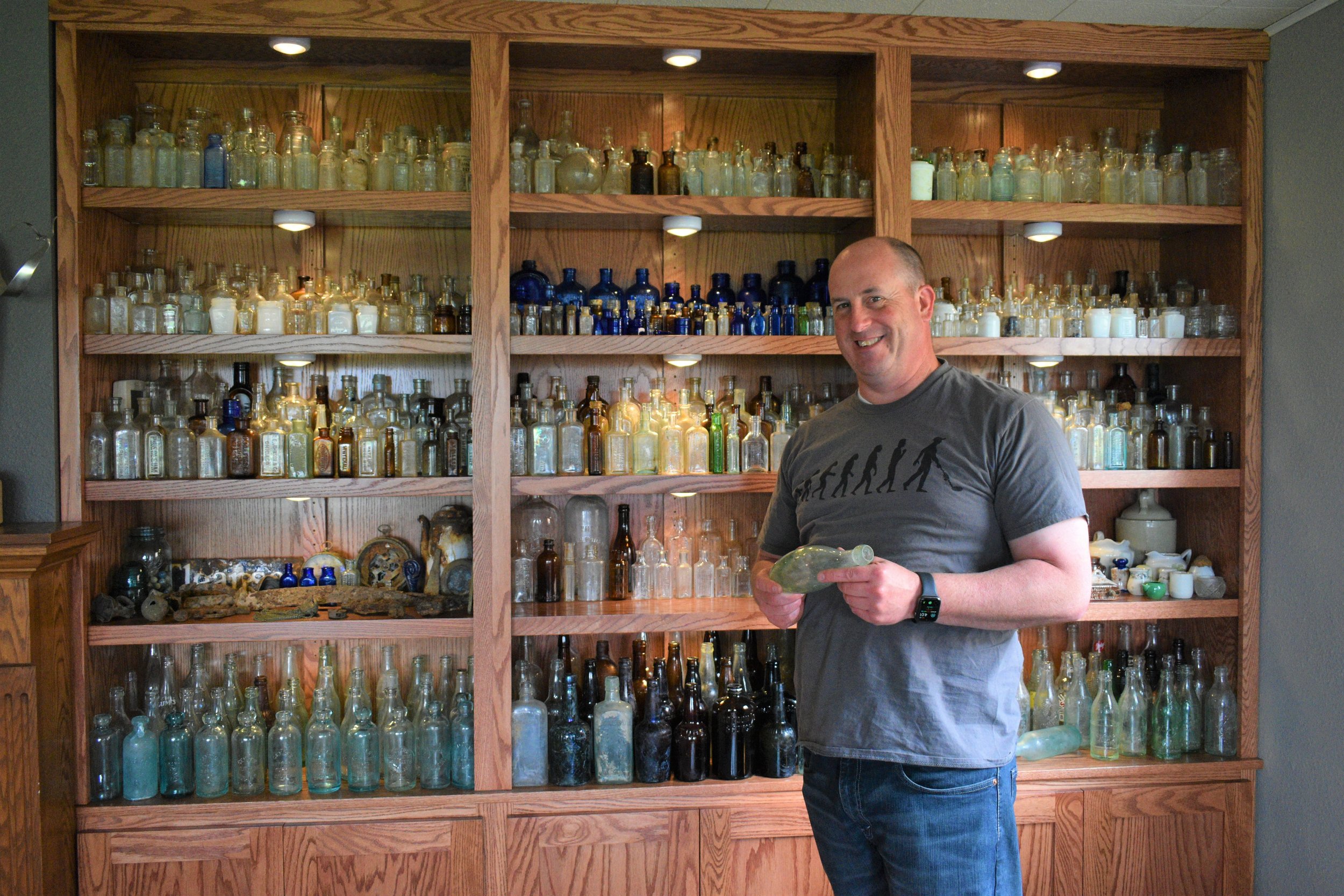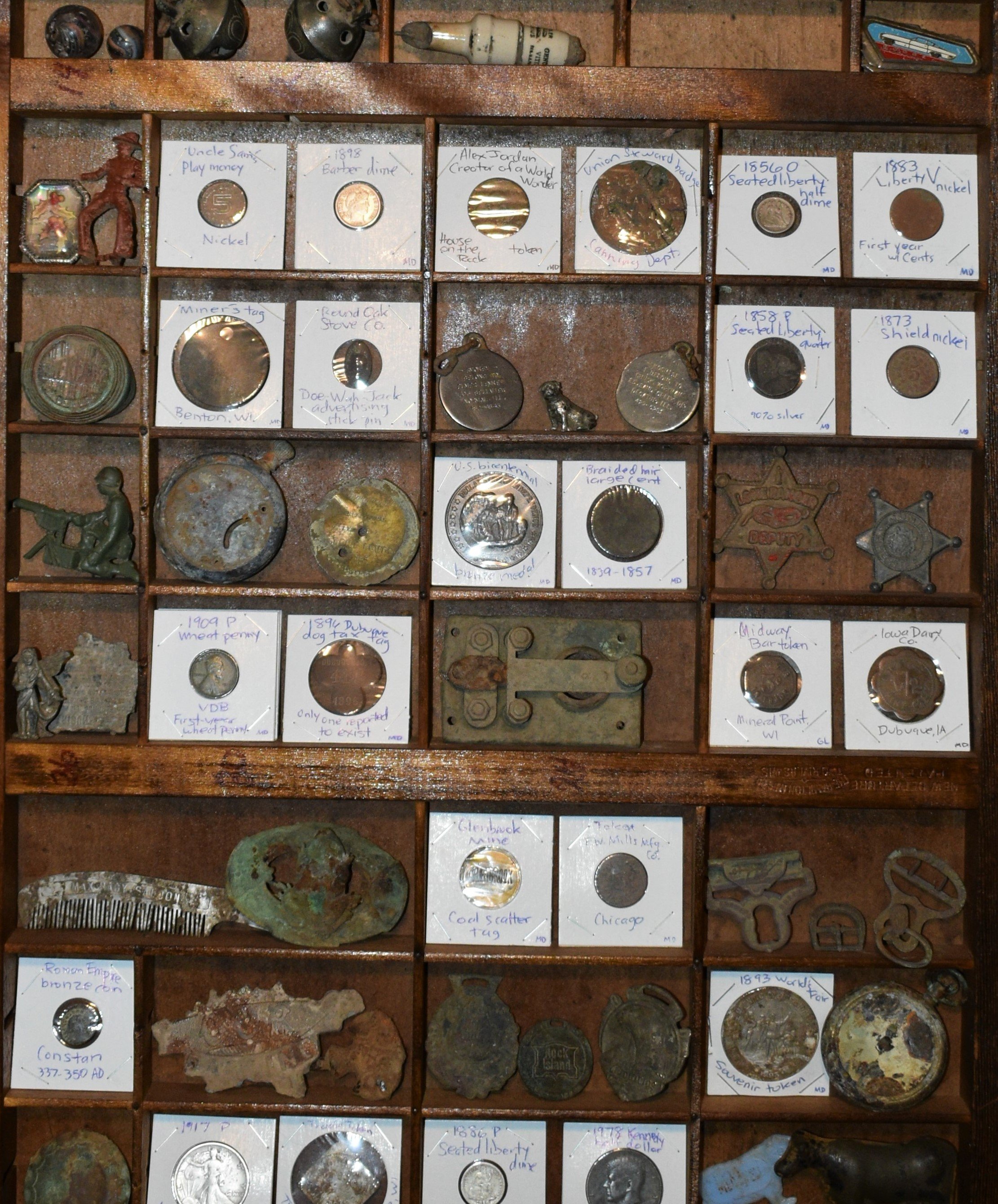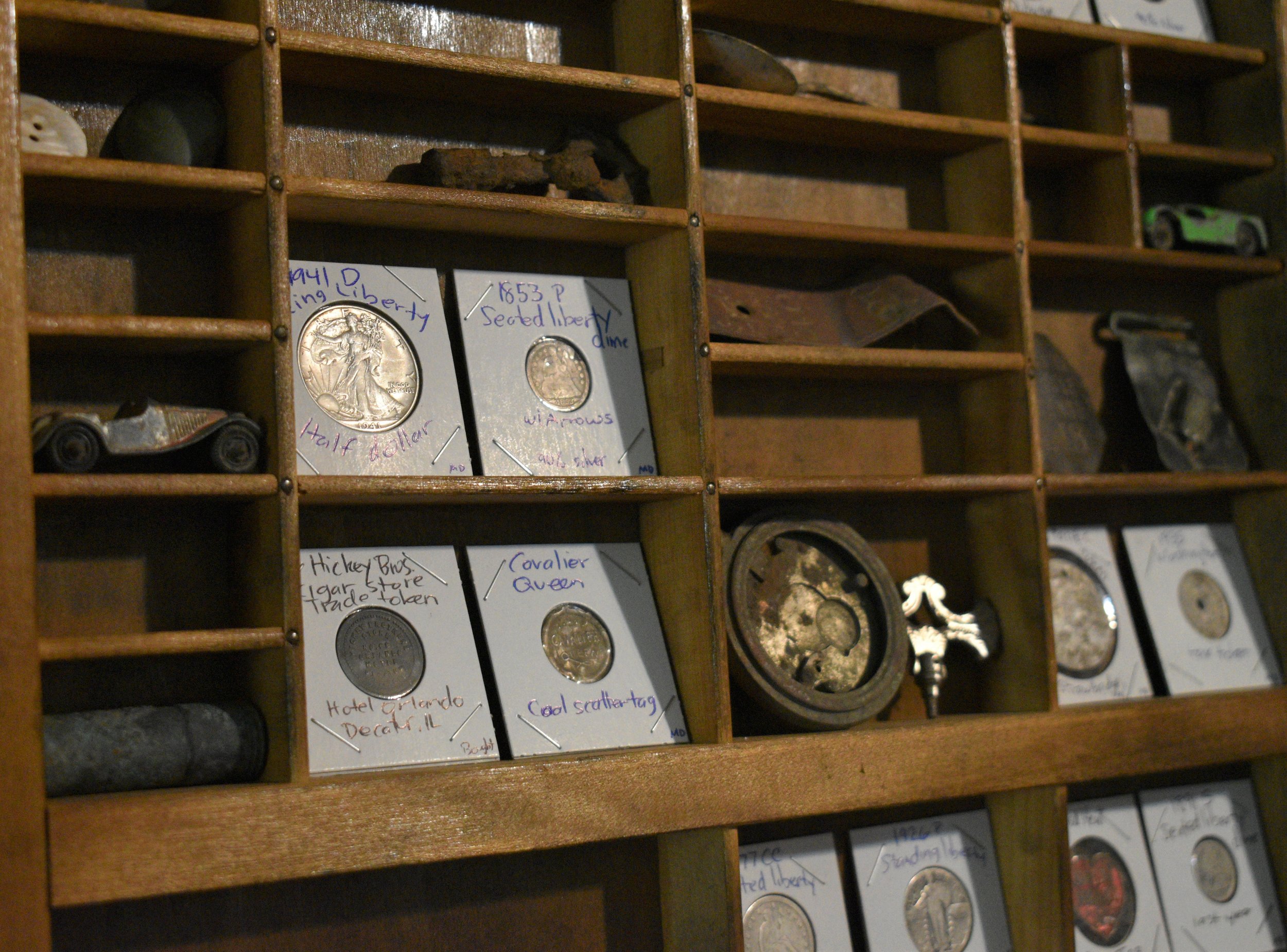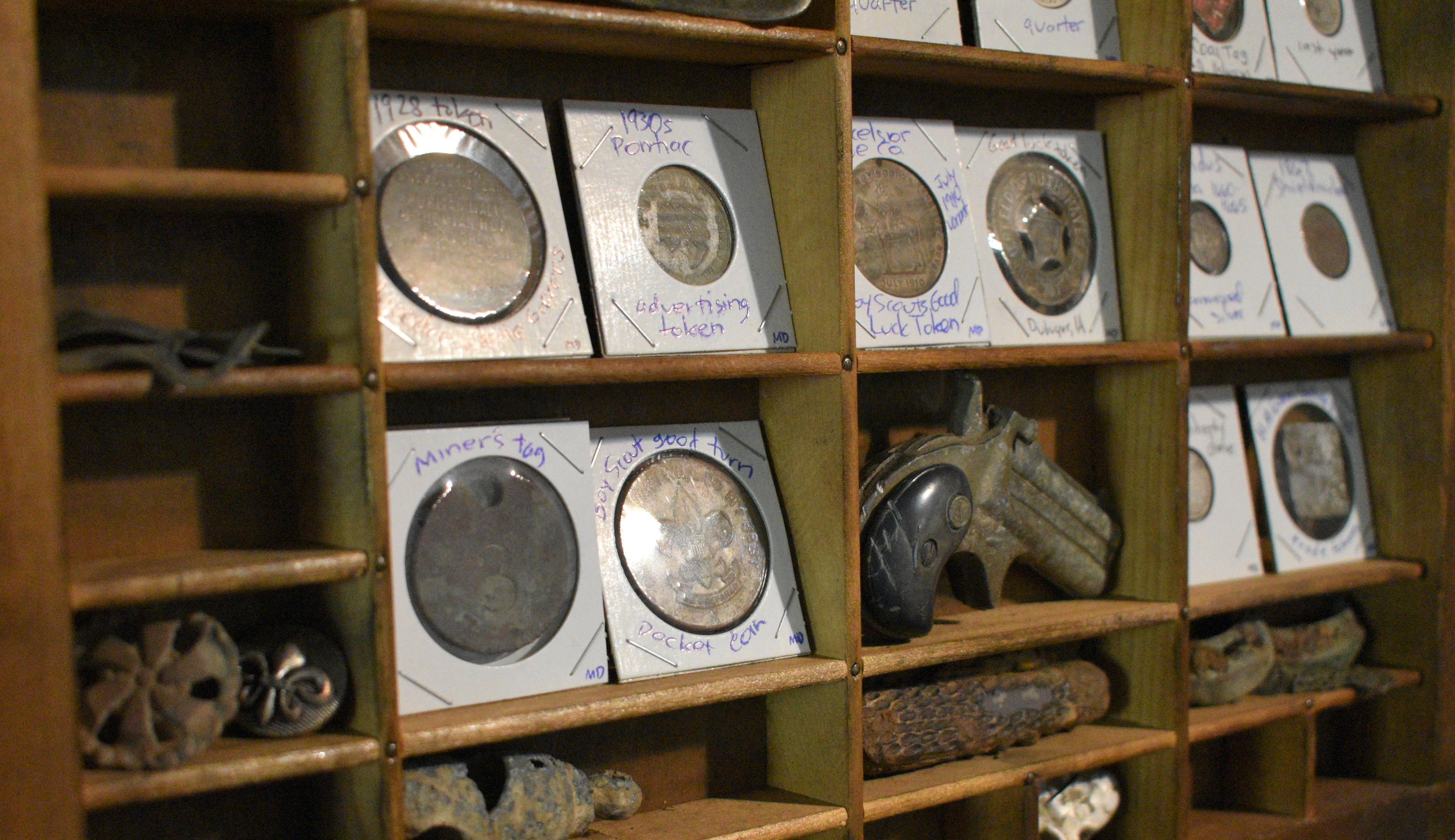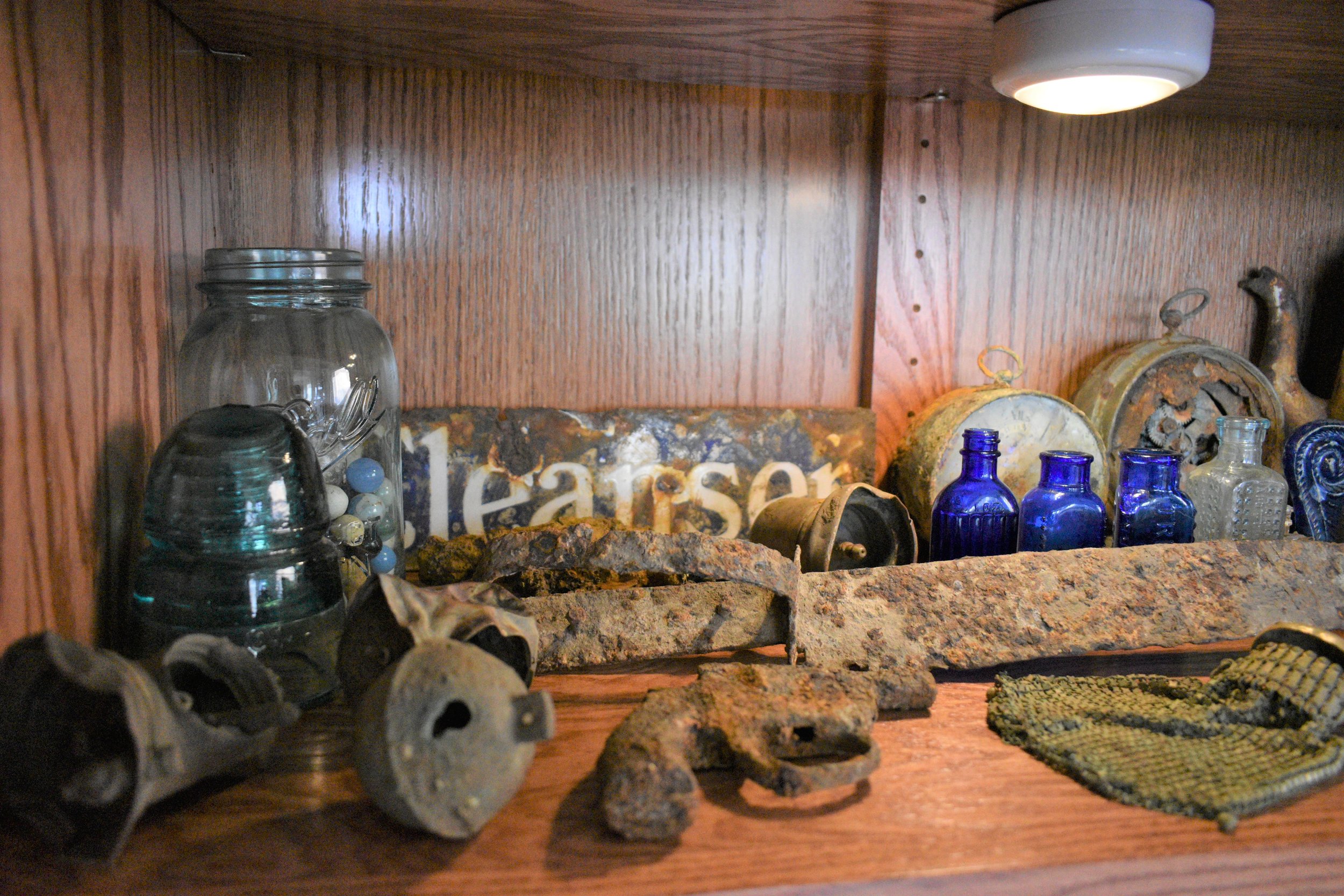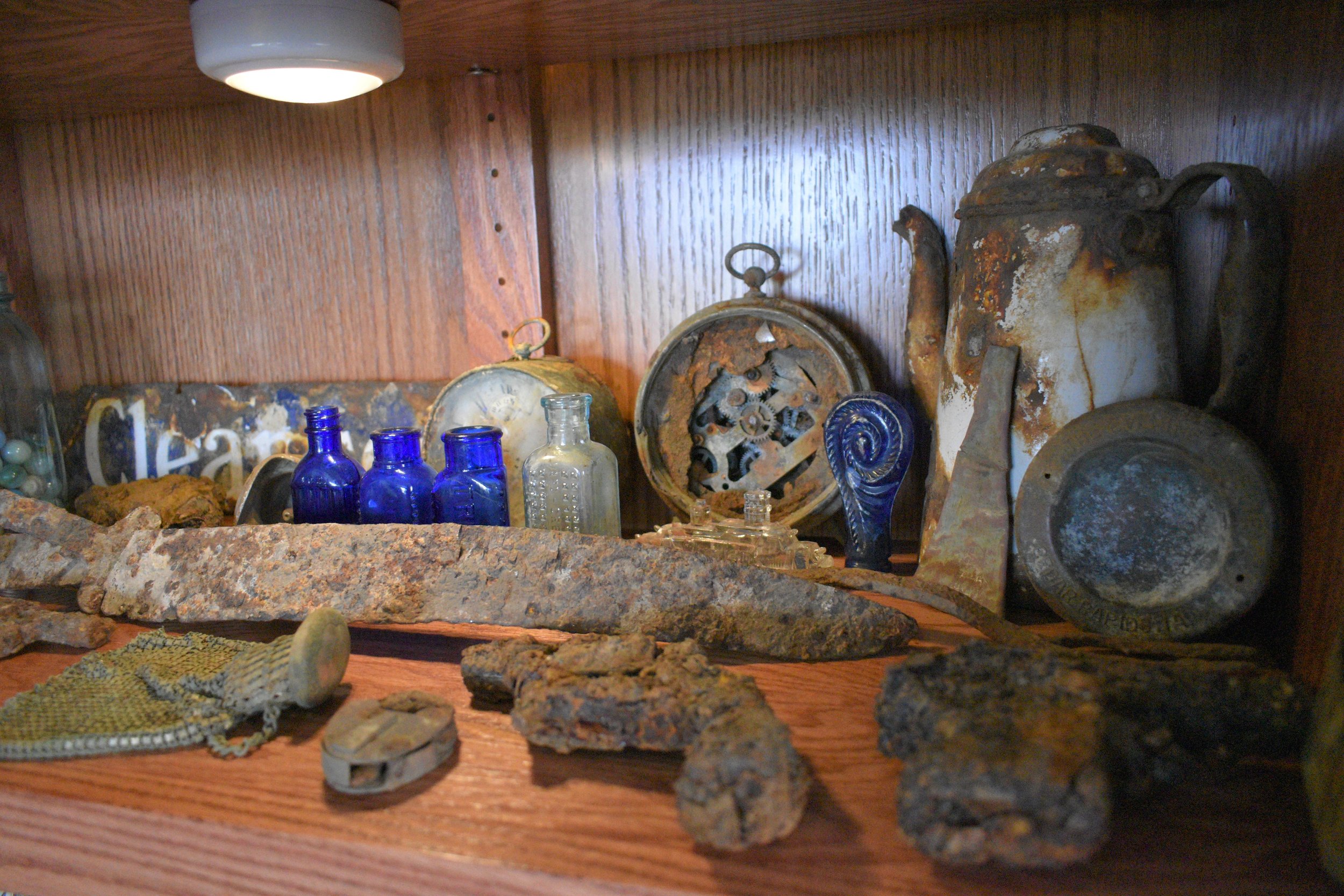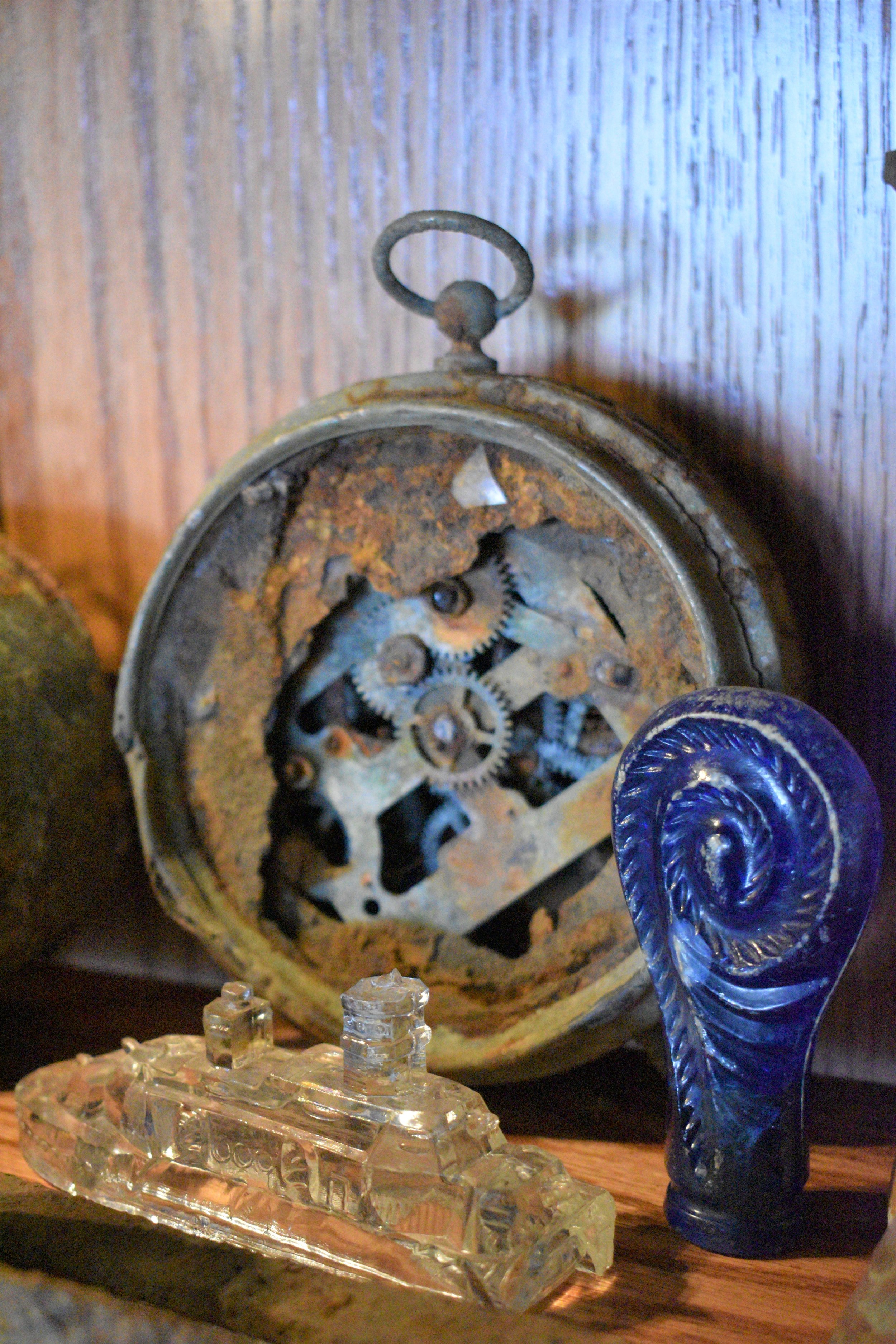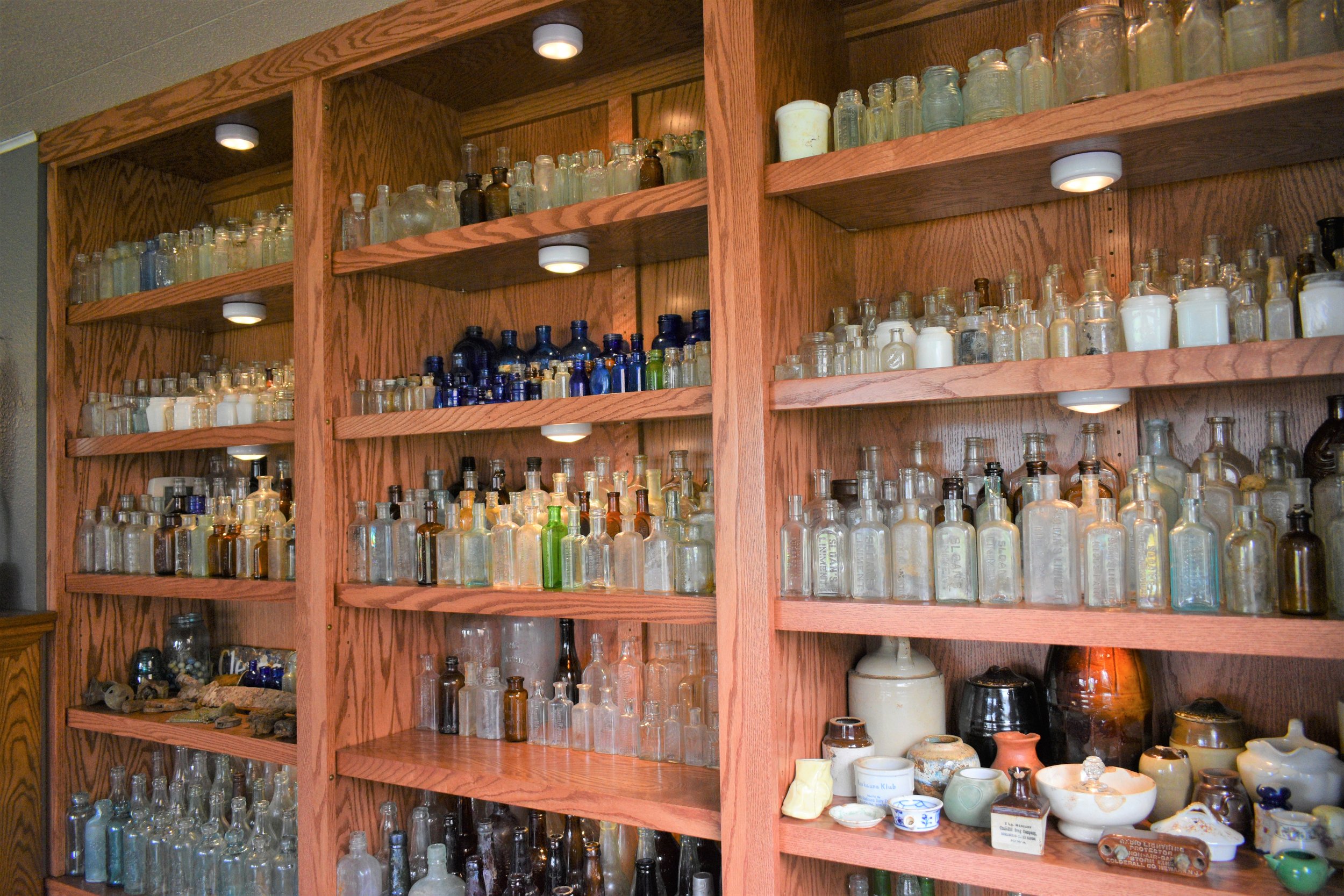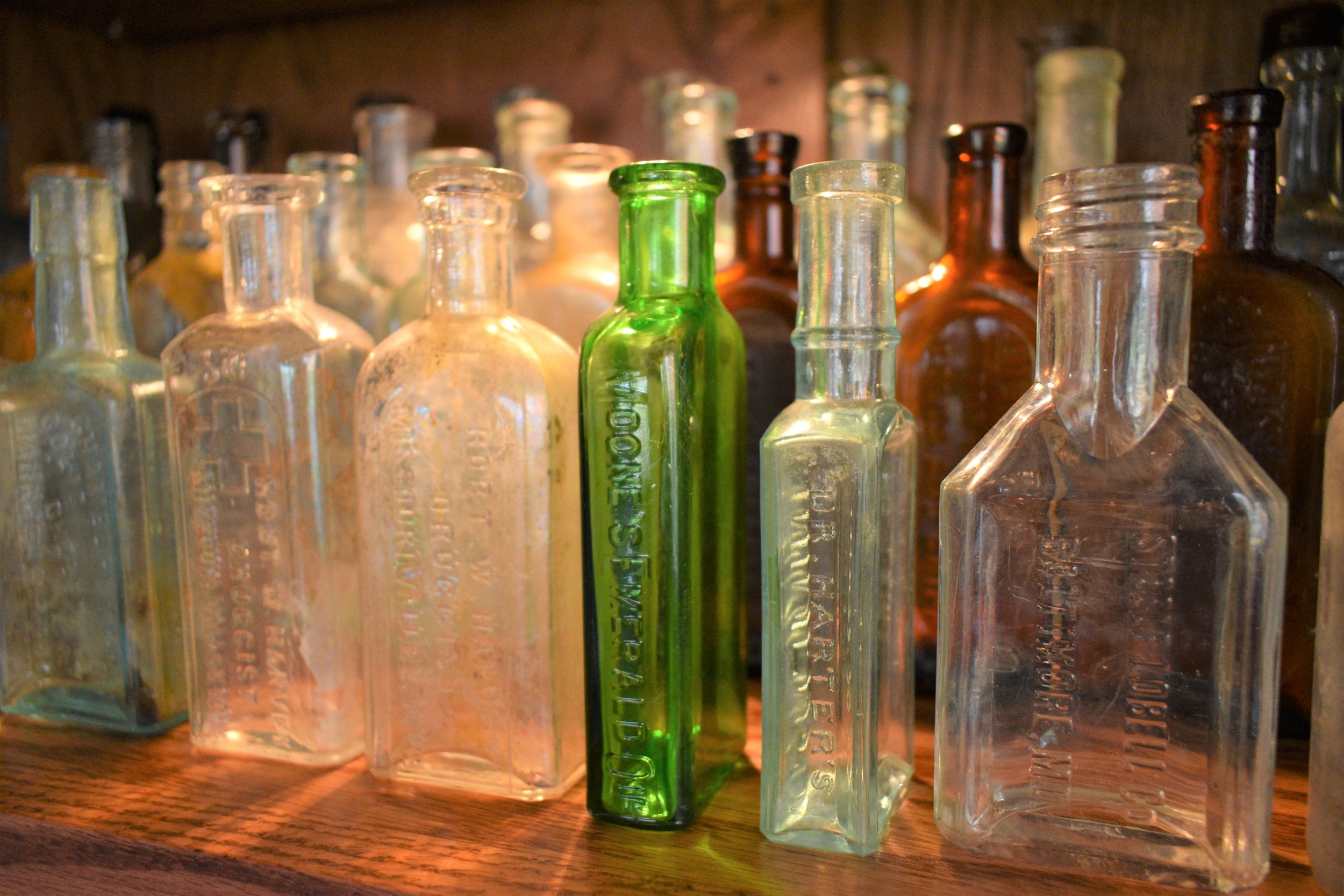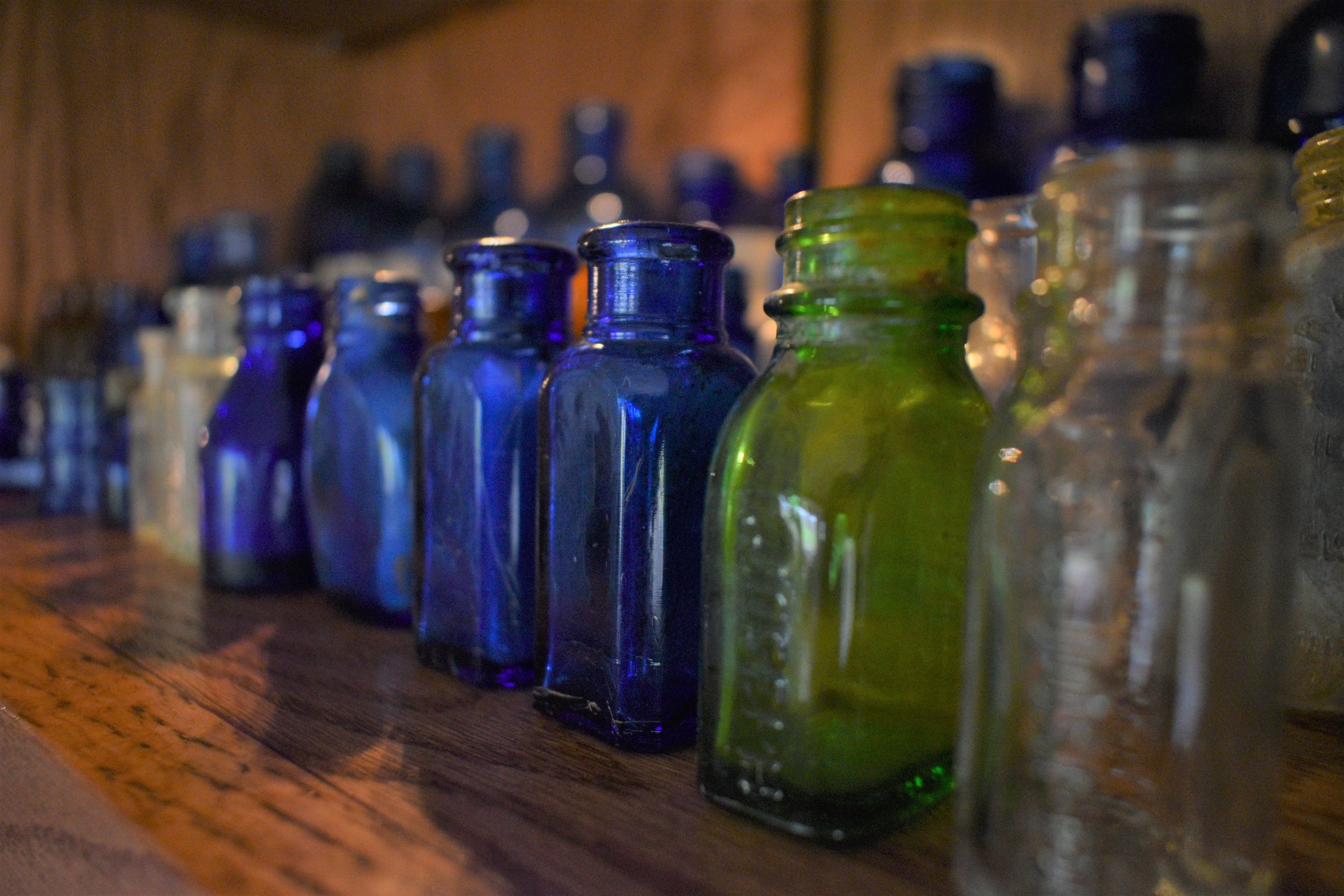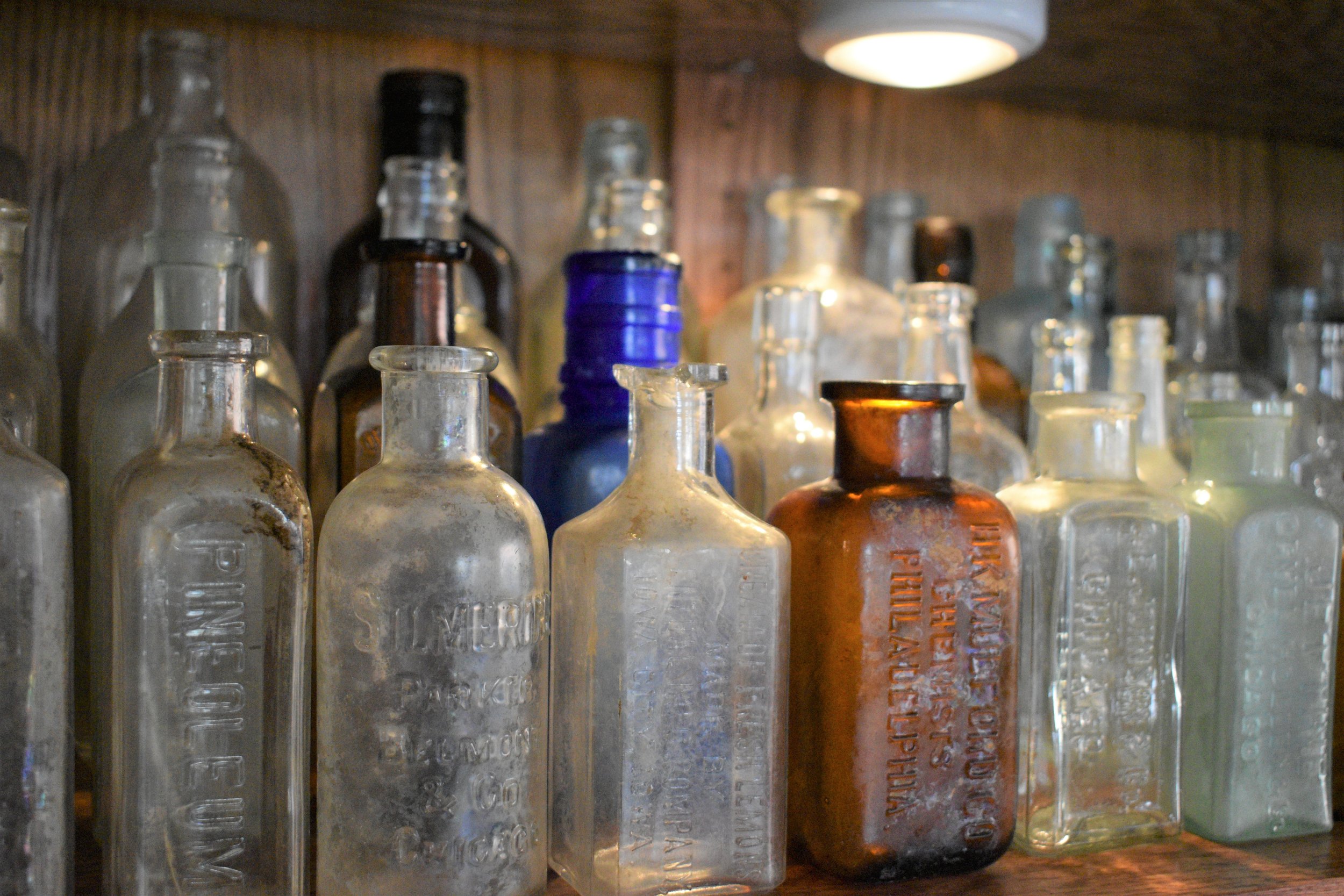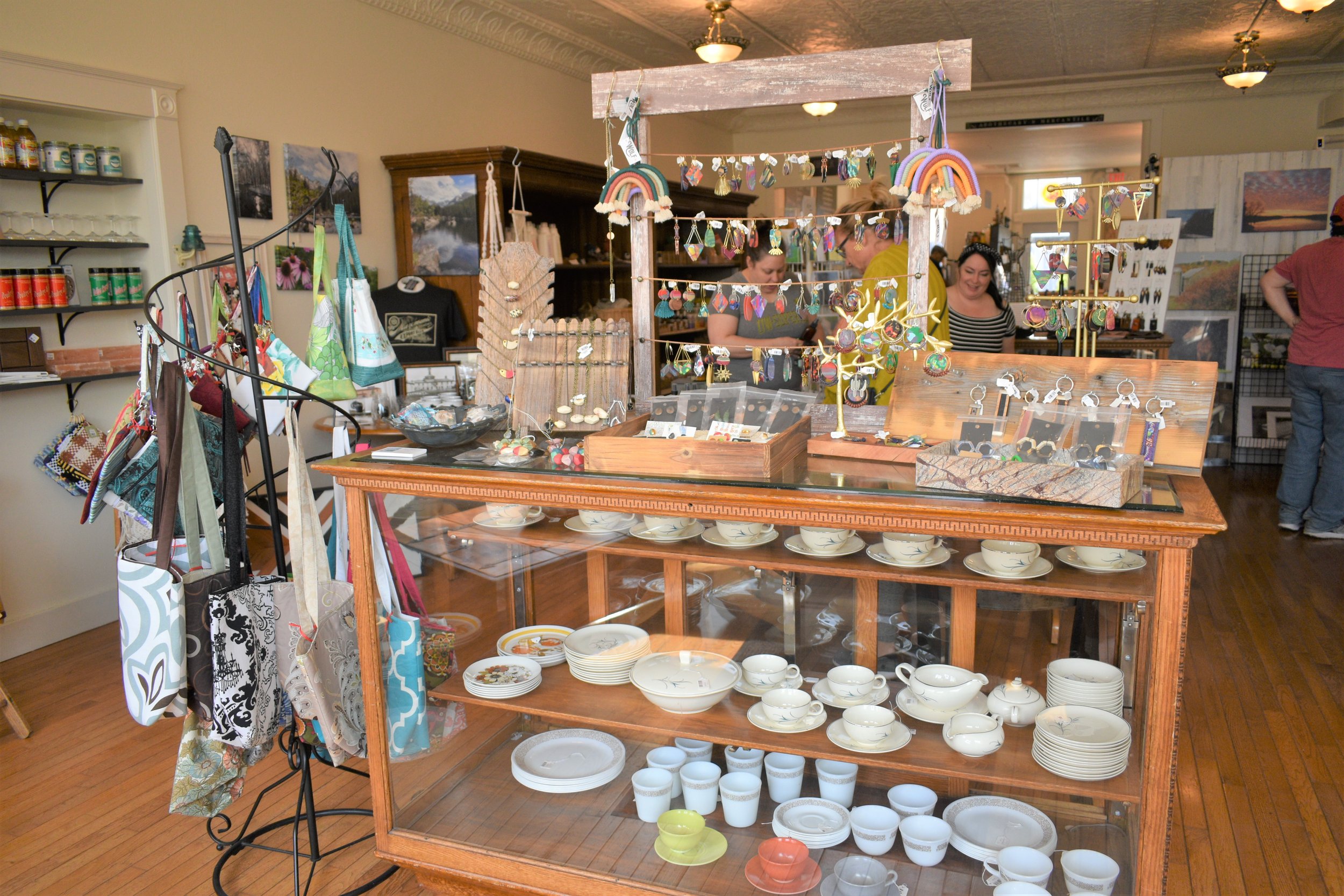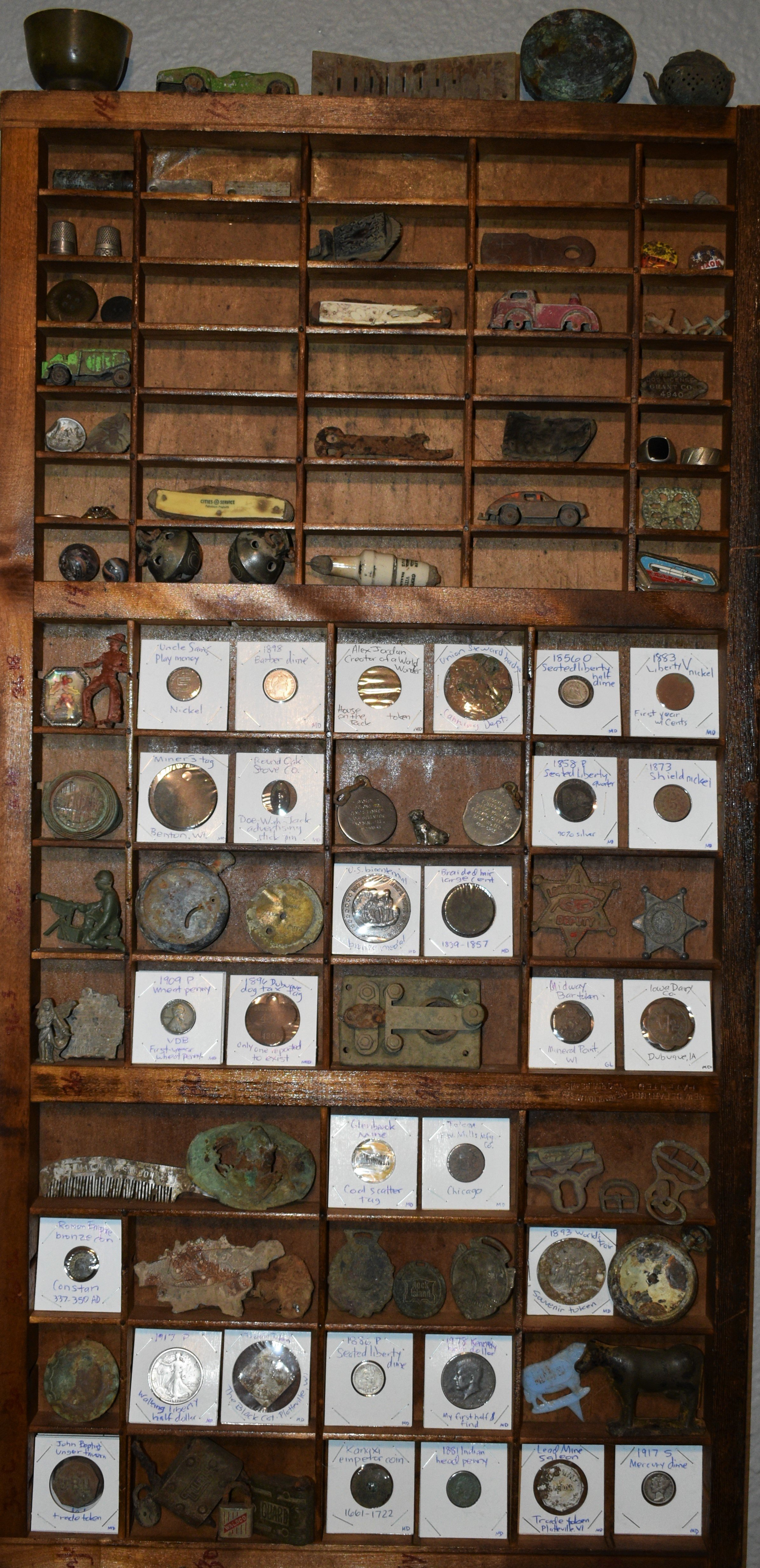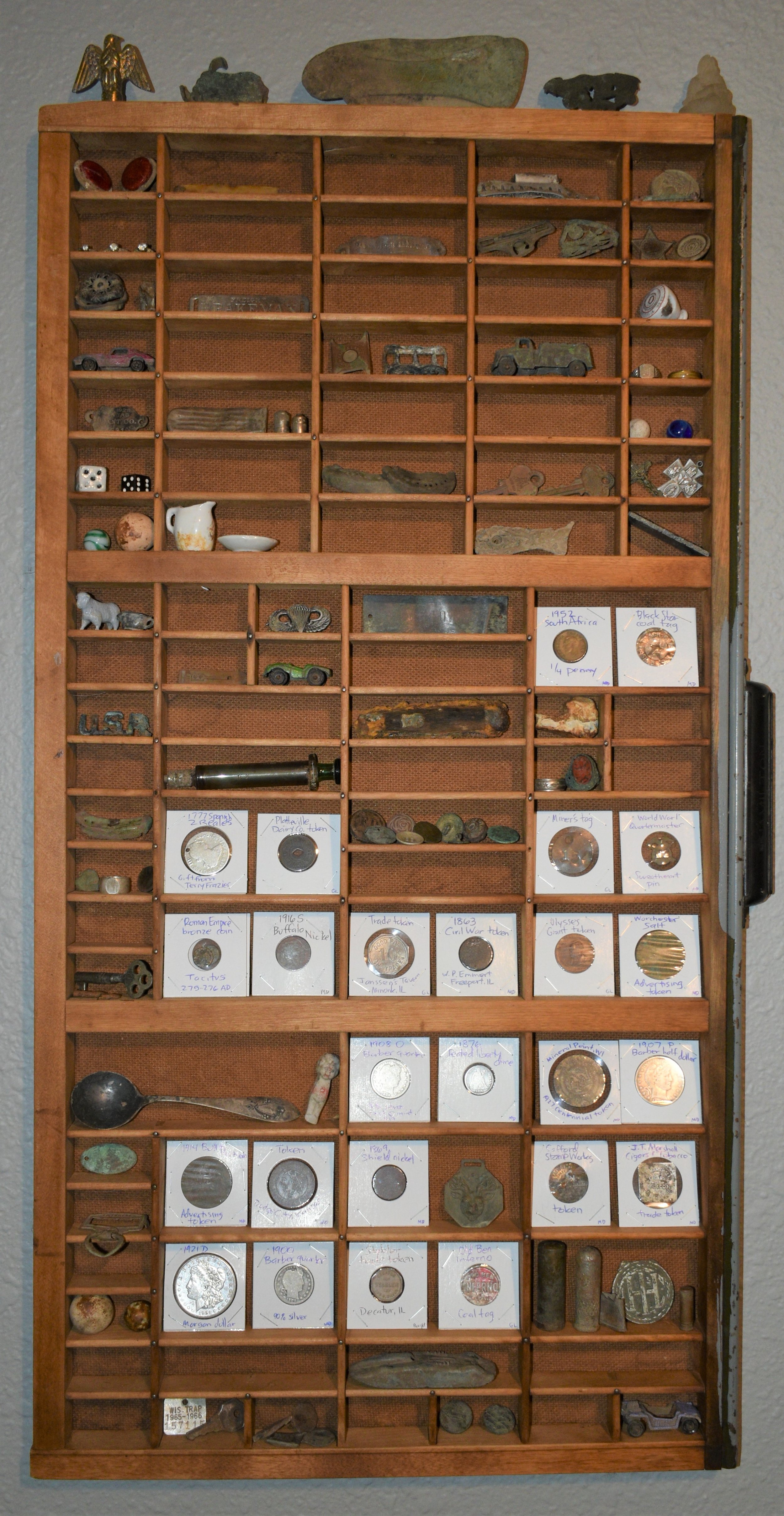Platteville man works to preserve Driftless area history
When thinking about history preservation, an archeologist may come to most people’s minds. But Jim Winter of Platteville, Wisconsin, and a journalist by trade, has taken the road less traveled when it comes to preserving history.
“There was a stretch of probably three or four years where I begged and begged and begged my parents for a metal detector”, said Jim. “Finally, I think at the age of 16 or 17, they got me a cheap child's metal detector and I used to just search the yard of my parents’ house.” Jim’s detecting did not go unrewarded though. He found wheat pennies, a Detroit Tigers pin, and an old dog tag from the owner who lived there before. He had found just enough things to pique his interest into the world of metal detecting.
But as it does sometimes, he said as a 17-year-old, life got in the way. He had to work, had to go to school, and eventually he went off to college and for the time being, metal detecting was put on the back burner.
Fast forward to 2019, Jim was cleaning out his garage, and low and behold he came across that beloved metal detector his parents had bought for him. “The wires in the metal detector that connect the battery to the machine were frayed and broken. I was like well, that's sad. You know, I haven't really used it in a really long time. Then, all of a sudden, I just thought, you know what, when I was a kid, I really enjoyed doing it for the year I did it. Why not do it?” With the spark renewed, Jim went out and bought a professional grade metal detector. He admitted, the draw when he was a kid, still holds true today, that you, “never know what's going to come out of the ground. It's the thrill of the hunt. It's the thrill of not knowing what it is that you're beeping over”. Jim said every time he goes metal detecting, that adrenaline rush comes over him, and then the question pops into his mind, “What am I going to find? Is it gonna be really cool? Is it going to be junk?”.
Slowly, he got back into the hobby that would lead to a more meaningful purpose. “I started detecting a little bit in 2019, not a lot, because I was still coaching semi pro baseball at the time (another passion of Jim’s). In 2020, I started doing it a little more often. Last year, in 2022, I did it a lot more. I now have two professional grade metal detectors and a third metal detector that's a backup.”
Jim expanded his adventurous searching in 2021 to old bottle digging, creek walking (walking in creeks searching for fossils, old items, etc.), and magnet fishing (using a high-powered magnet attached to a line and dragging it through bodies of water for metal objects). “To me, I do it because I love saving history. I'm really passionate about history, especially local history. So, just saving stuff out of the ground that can be lost forever or never found, is the thrill for me.” Jim acknowledged he doesn’t really sell anything except for maybe a couple of bottles. He stressed he is not looking to make money, rather, it truly is about preserving history.
Why history? Well, Jim said he would by no means call himself a history buff, but throughout school, history was his favorite subject. “I love watching the History Channel. That love of history is something that's always been there for me. I think it was just a matter of never really finding an avenue or a way to really dive into and embrace history until I came into metal detecting, and then bottle digging, creek walking, and magnet fishing. There are still people who use that phrase treasure hunting. I used to call that treasure hunting. But in the last couple months when I've done presentations, I've gotten away from that. To me, the phrase has somewhat of a negative connotation to it. Treasure hunting to me sounds like okay, I'm going to come into your yard, and I'm going to take everything out of the ground that's valuable. Take it with me, and you’ll never see it again. That's not what I do. That's not how I operate. To me, saving history is a much more appropriate phrase to use. I call myself a history saver rather than a treasure hunter.”
Eventually, Jim and I got into some of his finds and just how local they were. Maybe to some his finds are mundane, but if you really think about it, the word fascinating comes to mind. “I have trade tokens up here on display from Platteville, Benton, businesses in town here. I have bottles over there from local communities, Cedar Rapids, Platteville, all kinds of places. So that's that's how local you can actually get. I found a dog license tag from Dubuque, Iowa that’s from 1896. So, things like that are the most precious to me. They may not be the most valuable, but the most precious to me, because they're local. They're things that you're not going to find all over the country. You're only going to find them in certain places.”
Jim displays many of his finds in a showcase he has in his basement. While interviewing him, next to me sat display shelves that I could not stop looking at. I noticed what appeared to me, to be a very old telegraph. I asked him just how old was it? With a chuckle, Jim replied, “That’s not actually a telegraph, that's actually the trembler coil to a Model T Ford. That's what I first thought it was when I first found it. I posted it on an ID Facebook page. So, it went on top of the pistons. That's actually the only one that anyone has ever seen posted in that Facebook group and it's complete. Usually, you only find this little part in the front or you only find the screws, you would not find the piece complete. That was that of my first finds metal detecting.”
With so many items he has found, I asked Jim what his coolest find was. Without hesitation, he said, “Oh, that's easy, an 1863 civil war token.” This is where the history part that drives Jim comes into play. “So, during the Civil War people hoarded money, for very obvious reasons. Businesses, in order to keep business flowing had to make their own money or tokens in this case. I found this just south of Platteville in a hole with a nail, and it's from a hardware store in Freeport, Illinois. I was amazed that I found it. They're very rare to find. When I got it home, I looked it up on Numista, a website that values and determines the rarity of coins and tokens. Numista rates that token I found as R9, which means there's only three to five known to exist in the world. I thought it was a penny at first because it was really dirty and I don't really clean up finds in the field that much. When I got it home and cleaned it up, I realized what I had found. That's probably my favorite.”
Jim does his research to find places to metal detect or bottle dig. He looks for the old, old houses, and dumps that have been covered up for a long time that may have tree growth on top. “I have permission to a few places that used to be old city dumps. They're not anymore. Now they are just like woods. I search farm dumps, junk ditches on farms, and old house dumps. I find places to search by word of mouth, a lot of its by doing research. Most old towns in the later half of the 1800s before plumbing, their dump ditches would be about a mile from the city center near railroads, swamps, downwind usually from the village, so it's really easy to do research and try and locate them. A lot of its word of mouth though. People say, ‘hey, I know where some places, you should go check it out’.”
Jim said when he metal detects, most finds are an inch to four inches down. “That's where the majority of stuff lies, but I have found things 5,6,7,10, up to 12 inches under the ground depending on how big it is. I found an 1860s D-guard bowie knife 12 inches deep in the ground.”
While I listened to Jim, in the back of my mind I wondered what his parents think about his history preserving endeavors. I mean, surely, they must remember the moment they finally caved and got the little cheap metal detector for him. Sadly, Jim’s mother passed in 2015 and never got to see her son progress in his detecting, but Jim said his father is one of his biggest supporters. “He loves seeing when I post my fines, and actually, whenever he comes up here in nice weather or I go down there and it’s nice weather, he asks if we can go out and go metal detecting or bottle digging. He's actually come with me on a couple of those too. He'll sit on a porch of the house where I’m metal detecting, or he'll sit right in the edge of the dump where I’m bottle digging and watch me do my thing. He doesn't want to actually actively participate, but he just loves the thrill of seeing what comes out of the ground. So, he's a big supporter of what I do in words, not money or anything like that, but he just champions me along by saying, ‘hey, I really liked your finds. Good job! Amazing what you find.’” As any child would, having those positive reinforcements to revel in is a good thing, at any age.
Part of Jim’s hunting entails giving back. On several occasions his name has come up as someone who could possibly find property line stakes that are covered up by ground. In turn, he may ask permission to detect their property, more specifically their yard. “I don't charge people money to help them find property stakes,” Jim said. “This Sunday, I'm going to Mineral Point to help a woman whose neighbor and her have a retaining wall in between their properties that fell over. They need to know who's responsible for it to get it fixed. The woman asked me ‘How much do I owe you because the surveyor is going to charge me $600?’. I said, ‘you don't owe me anything, I do this because I want to help. If you want to provide a donation that I would use for gas so I could help assist others, that’s up to you. But it's not required expected or needed’. So, it's up to them. I was in Benton last week metal detecting a guy’s yard, and a woman walked across the street and said, ‘excuse me, sir we want to put up a fence Would you help us find our property stakes?’. I said ‘sure’. She asked how much I would charge. I told her, all I would ask is, if she wanted to, she could make a donation. I went through the same spiel. I said the only thing I really ask is if you would give me permission to detect the rest of your yard. I follow a code of ethics that Garrett, one of the metal detecting companies actually created. With me, the property owner always has first right of refusal to what I find. I told her that anything I find, you get to look at and you get to tell me what you want to keep. So, it's a nothing to lose situation for them. I'm helping them clean out trash from their yard, and they get to keep any cool treasures I find.”
Jim believes it is important to preserve history through finding what we will call artifacts. See, everything that he finds has a story behind it, whether personal or of cultural and societal significance. At one point in time, the items Jim finds were important to some extent, a person or culture. Part of preserving local history he believes, is through teaching, sharing, and encouraging others to get out and search. Jim has presented on detecting, bottle digging, and magnet fishing at the senior center and Optimist Club in Platteville. “I did a fourth presentation at the local library just a few just a few weeks ago that was open to anybody. There were some young people, not school aged children, but that's the age level that I haven't gotten to talk to yet. Again, it’s all about giving back. It's not just me taking stuff and displaying it, but giving presentations. I actually mentor other people on metal detecting, old and young. I have a few students that I help learn. I help recommend what metal detectors to buy and teach ethical practices when out in the field. It's about making sure other people are interested in it. I want as many people as possible to save history. I’m not one of those guys who's like, you know, it's all mine and I'm not gonna tell you where I'm going to search. I'm gonna share with you what I know.”
Jim pointed out, people in the metal detecting, bottle digging, and magnet fishing communities are really nice. “The significant majority of us are willing to share our knowledge. We want to have the younger generations save history. My personal opinion is, our generation, I'm 48, is the last generation that really appreciates history, appreciates old things. My daughter is different. She loves history, and she's already told me ‘I know when you pass away, I'm inheriting a collection’. But her generation is more of the throwaway society. The more we can educate younger generations, the better. When somebody comes to me and says, ‘Hey, I want to get into this hobby, what do I do?’, I first asked them what is your budget? I recommend a metal detector based on their budget. And if they're local, I will say ‘hey, let's go out some time. I'll show you tips and tricks. I've done that with one woman who's in her late 60s that's a student of mine, I have a couple that are in their 20s doing it, and another woman recently asked me to help her out.”
For beginners, Jim recommends you start detecting in parks because most parks allow you to dig. He stressed though, that you have to check with your municipality to verify digging is allowed. “In Platteville, I can go anywhere on city property and detect no problem. But when I lived in Dubuque, Iowa, I had to call and get a permit and I can only pick two parks a month to detect and required to carry the permit with me. My hometown of Decatur, Illinois does not allow metal detecting in parks at all. You can obviously metal detect in your own yard, so do that. Get to know people in the community, especially the older folks who know where some of the better spots are where a lot of people used to congregate. Find out where the history is, and do your research.” Jim also recommends checking old maps, and using Google maps. “Find places that you can go and be really nice, and ask for permission,” he said smiling.
Jim plans to continue metal detecting, bottle digging, creek walking, and magnet fishing as long as he’s physically able. “I'll continue to mentor people who want to do it. I have a friend in Minnesota, a metal detectorist, who is a school teacher, and actually has a program where he obtains metal detectors from people who are getting rid of them or selling them and teaches at-risk kids how to metal detect. So, I'm toying with that idea or something like it. I'm hoping to apply for grant opportunities out there for someone like me who loves saving history, to be able to save more history, whether it's by having better metal detectors, more equipment, or the opportunity to travel and do things to save that history.”
Jim said he’s always looking for permissions to search properties and has a running list of permissions he has obtained located all over the Driftless area.
Maybe, just maybe, if we had a few more Jim Winters, imagine the amount of history that can be discovered and preserved. To think it all started with a teenager’s tenacity in asking his parents for that first metal detector. I am sure Jim’s mother smiles down on him every time he goes out searching. She might even be thinking to herself, ‘that’s my son’.
If you are interested in finding out what history might be on your property, and would like to grant Jim permission to metal detect it, contact Jim at (608) 712-3406 or by email: jimwinter34@gmail.com.
Follow Jim’s history preserving, see photos of his finds, and watch his videos on his Facebook page Driftless Digger. You can also find Driftless Digger on Instagram and TikTok.
